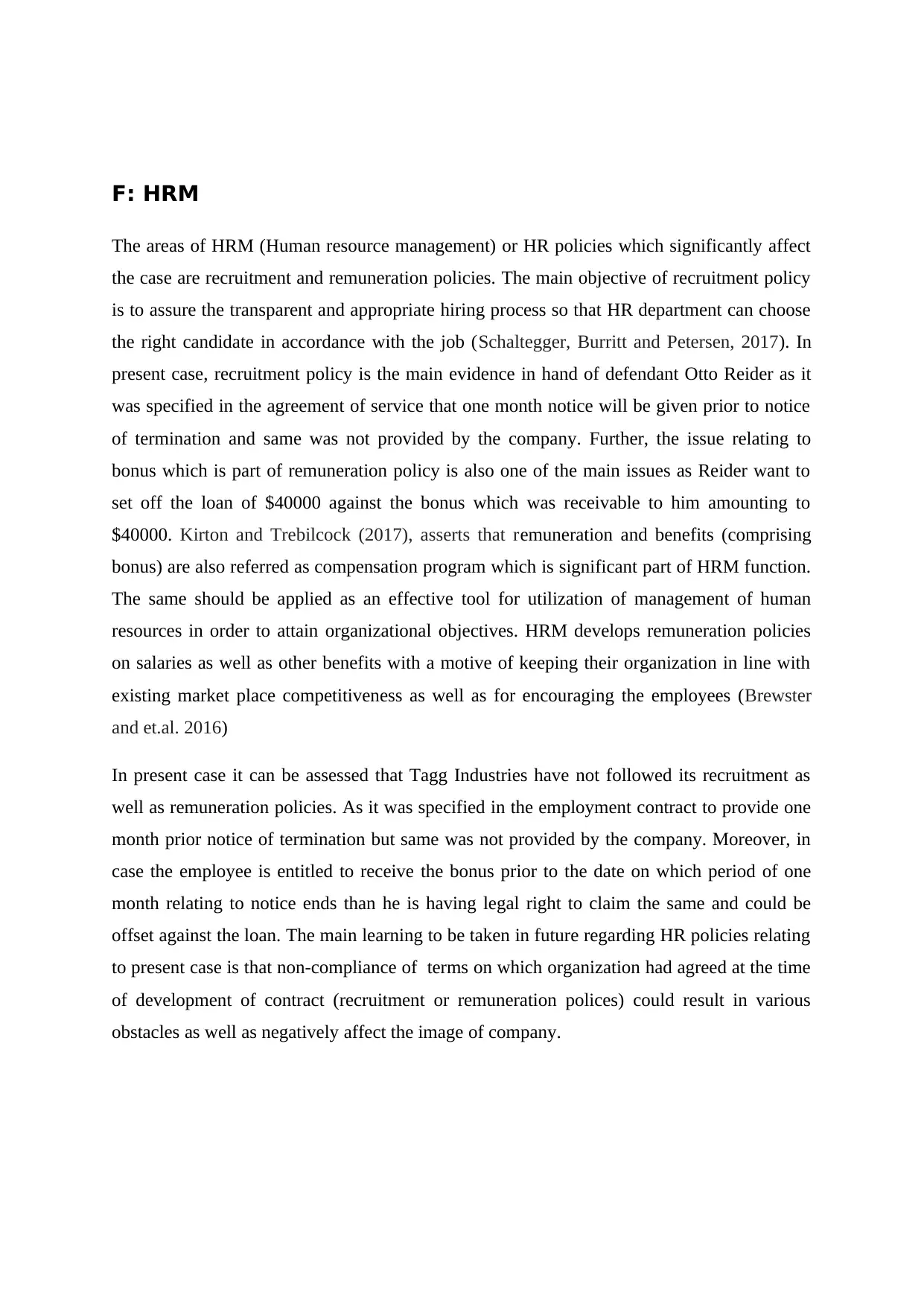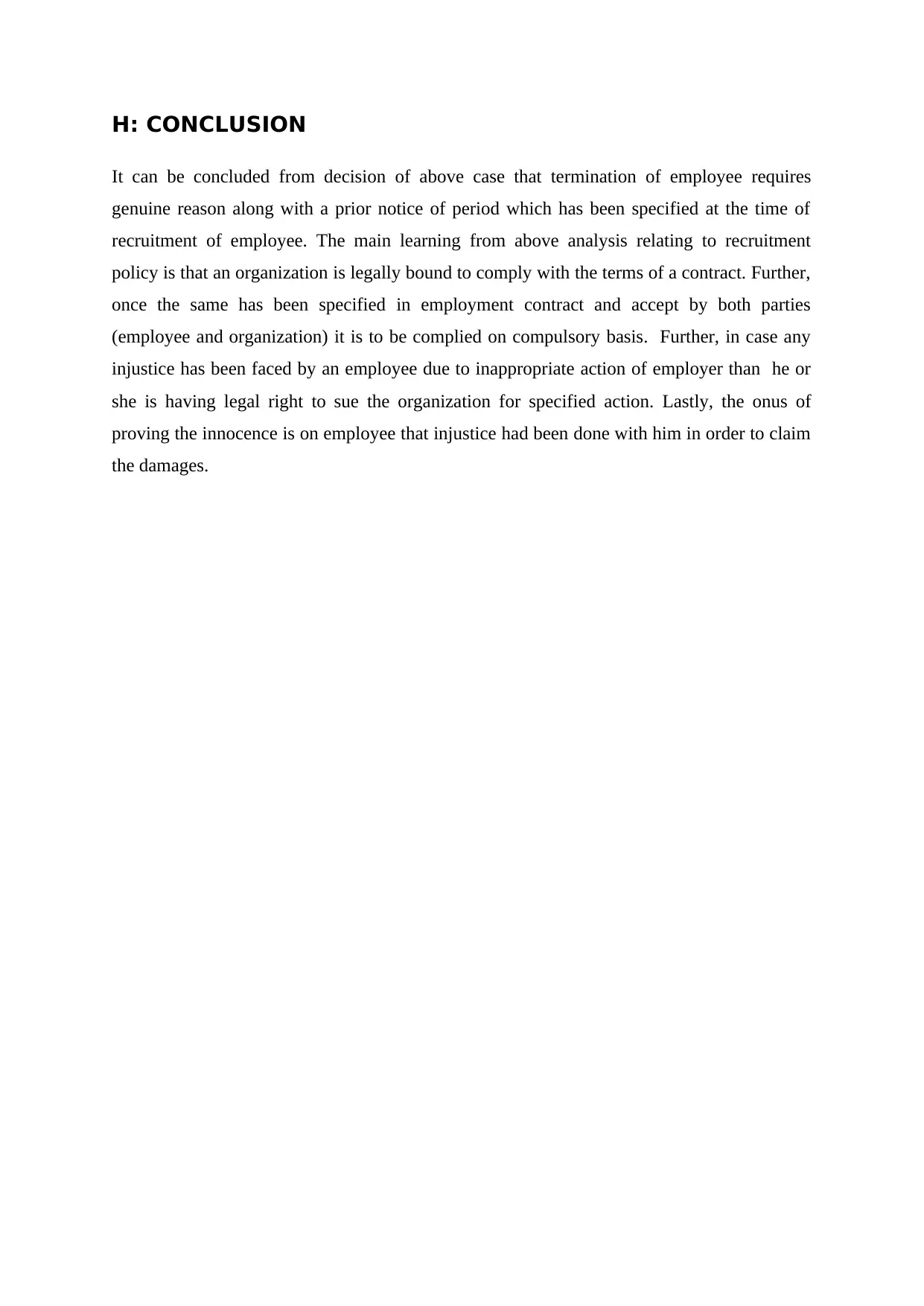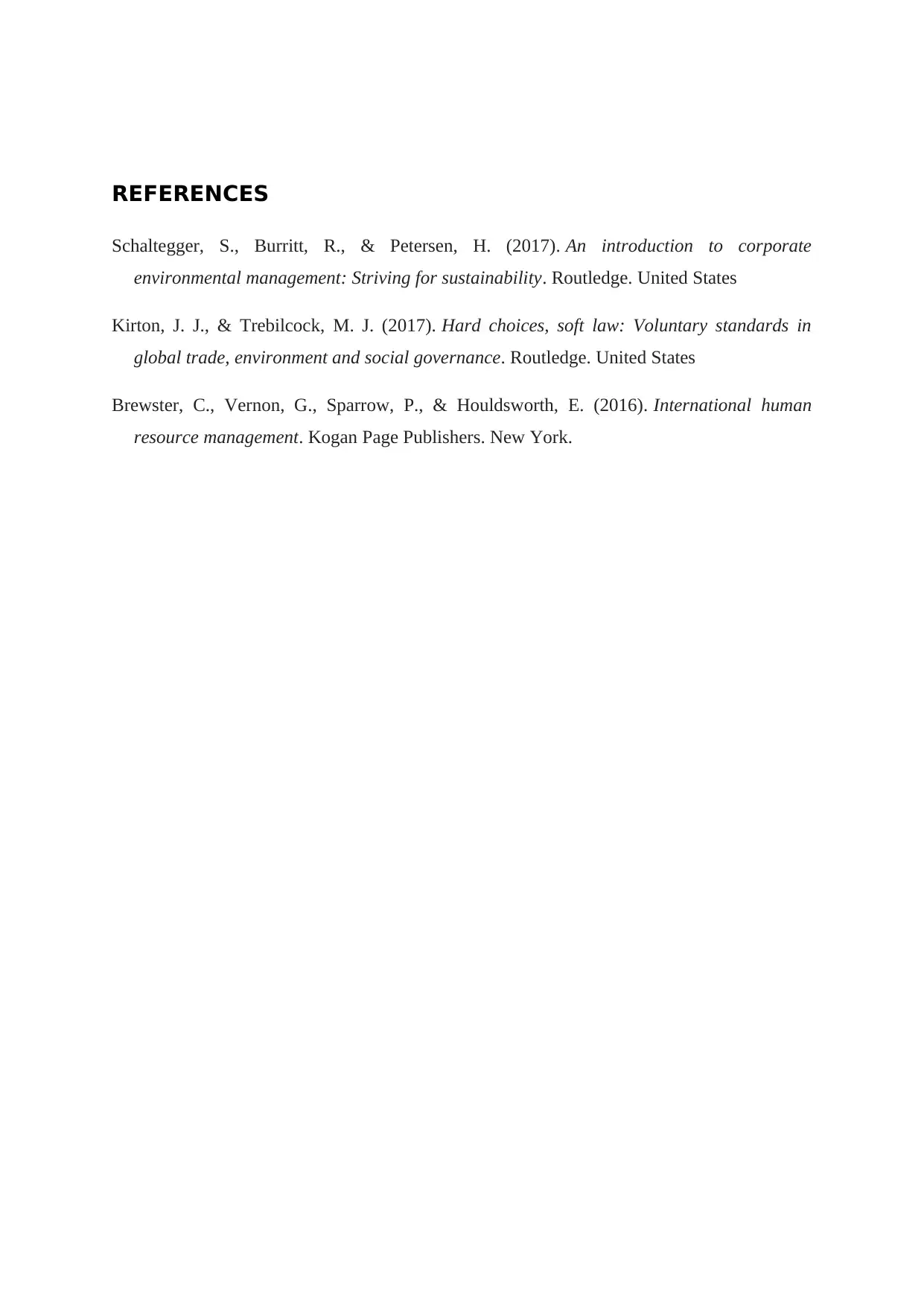HRPD 706 - Analysis of Tagg Industries v. Rieder Employment Case
VerifiedAdded on 2023/04/26
|4
|661
|452
Case Study
AI Summary
This case study analyzes the Ontario Supreme Court case of Tagg Industries v. Rieder, focusing on key facts, issues, and the relevant areas of Human Resource Management (HRM). The case revolves around a dispute between Tagg Industries and its former employee, Otto Reider, concerning the terms of his employment contract, specifically the one-month notice period for termination and the bonus entitlement. The analysis highlights the importance of adhering to recruitment and remuneration policies, emphasizing that non-compliance with agreed-upon terms can lead to legal challenges and damage a company's reputation. The conclusion underscores the legal obligation of organizations to comply with contract terms and the employee's right to seek legal recourse in cases of injustice. Desklib offers a wealth of resources, including solved assignments and past papers, for students seeking to deepen their understanding of similar legal cases and HRM principles.
1 out of 4









![[object Object]](/_next/static/media/star-bottom.7253800d.svg)